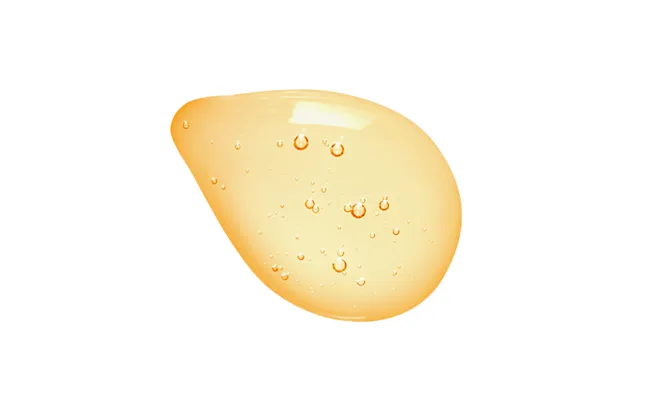Fish oil
Eicosapentaenoic acid & docosahexaenoic acid

Contains EPA and DHA
Non-GMO
Disclaimer: The information provided on this page is not a substitute for professional medical advice, diagnosis, or treatment. If you have any questions or concerns about your health, please talk to a healthcare provider.


Vitals
An enormous amount of research has been conducted on fish oil covering a wide range of medical conditions.
While studies show that eating fish appears to be beneficial for heart health, the exact effects of obtaining EPA and DHA from supplements alone are unclear. Some studies show beneficial effects of supplementation on triglyceride levels.
Talk to your healthcare provider if you are concerned about any side effects you experience.
FAQ
What is fish oil?
Fish oil is a substance that is primarily consumed for its omega-3 fatty acids. Omega-3 fatty acids are one of two major classes of polyunsaturated fatty acids (PUFAs), the other being omega-6 fatty acids. The three major omega-3 fatty acids are eicosapentaenoic acid (EPA), docosahexaenoic acid (DHA), and alpha-linolenic acid (ALA). Omega-3 fatty acids play several roles in the body. Notably, they:
Form part of the cell membrane of cells
Can be used as an energy source
Can be turned into signaling molecules called eicosanoids, which play a role in heart, lung, immune system, and endocrine system health
ALA cannot be made in the body and must be consumed in the diet. As a result, it is the only essential omega-3 fatty acid. EPA and DHA can be made from ALA in the body, although the process is inefficient. Because of this, consuming EPA and DHA in the diet or through supplements is a more effective way to increase their levels. ALA can be found in plant oils while EPA and DHA can be found in fish, algae, and krill (4).
What are the health benefits of omega-3 fatty acids?
A large number of studies have looked into the health benefits of omega-3 fatty acids. While some of the research is promising, it is difficult to draw firm conclusions. In many of the cases, it is hard to distinguish if the benefits that are seen are a result of EPA and DHA or a result of some of the other compounds that can be found in fish or fish oil. The main health conditions on which research has been conducted include (4):
Heart health
Childhood development
Cancer prevention
Cognition and dementia
Age-related macular degeneration (a type of vision loss)
Dry eye disease
Rheumatoid arthritis
Depression
Inflammatory bowel disease
Attention-deficit/hyperactivity disorder
Allergies
Cystic fibrosis
The overarching theme for these conditions is that more research needs to be done before the full benefits of omega-3 fatty acids are understood. Including seafood in the diet is likely to be healthy, but the exact effects of supplementation is unclear (3).
Fish oil also has the following health benefits, which is why it was chosen to be an ingredient in the Roman Dailies:
Heart Health
A large number of studies have also investigated the effects that EPA and DHA may have on heart health. Again, research is mixed regarding the relationship between fish oil supplementation and cardiovascular disease (2). Overall, observational studies have found that higher consumption of dietary fish and higher blood levels of omega-3 fatty acids are each associated with a lower risk of heart failure and coronary heart disease (4).
Additionally, some studies have looked specifically at the effects of supplementation on triglycerides, which are fats that circulate in the bloodstream and contribute to heart disease:
In one study, both EPA and DHA were seen to lower triglyceride levels, but DHA raised LDL cholesterol (“bad” cholesterol) levels whereas EPA did not (5).
In one study in patients with elevated triglyceride levels, supplementation with 2,000 mg twice per day of icosapent ethyl led to a reduced risk of ischemic events, including death due to cardiovascular issues. Icosapent ethyl is a purified form of EPA (1).
How much omega-3 is recommended?
The Adequate Intake (AI) level of ALA is 1,600 mg per day for men over the age of 13 and 1,100 mg per day for women over the age of 13 unless they are pregnant (1,400 mg per day) or breastfeeding (1,300 mg per day). The AI represents the daily amount of a vitamin that is assumed to ensure nutritional adequacy (4). The AI only refers to ALA and not to EPA or DHA because ALA is the only omega-3 that is essential in the diet.
In what forms is omega-3 available?
You can get omega-3 directly through the diet or by taking supplements. Supplements that contain EPA and DHA include fish oil, krill oil, cod liver oil, and algae oil (which is a vegetarian option). Depending on the type of supplement and oil you get, there may be different concentrations of triglycerides, phospholipids, and other compounds mixed in with the omega-3 fatty acids (4).
How does Ro offer fish oil?
Ro obtains fish oil as a marine lipid oil containing 300 mg/g of EPA and 200 mg/g of DHA ethyl ester. The marine lipid oil is derived from anchovy, mackerel, sardine, skipjack, and herring. The fish come from the Indian Ocean, the North Atlantic Ocean, and the Pacific Ocean. The marine lipid oil is GMO-free and is extracted in Canada by the process of ethylation and distillation. The marine lipid oil is carried in mixed natural tocopherols and sunflower oil.
Ro offers fish oil in the following supplements:
Fish oil is one of seven main ingredients in the Heart Health supplement. The supplement consists of four tablets and two fish oil softgels that should be taken with water. Each individual softgel contains 1,200 mg of fish oil, for a total daily dose of 2,400 mg. This includes 720 mg of EPA (360 mg per softgel) and 480 mg of DHA (240 mg per softgel).
Ingredients in the tablets include spirulina whole plant powder, deodorized garlic bulb powder, magnesium citrate, Coenzyme Q10, menaquinone-7, cholecalciferol, microcrystalline cellulose, dicalcium phosphate, stearic acid, croscarmellose sodium, magnesium stearate, silicon dioxide, and pharmaceutical glaze (shellac, povidone). Other ingredients in the fish oil soft gels include gelatin, glycerin, purified water, and mixed tocopherols. The softgels contain fish and should not be consumed by anybody with a fish allergy.